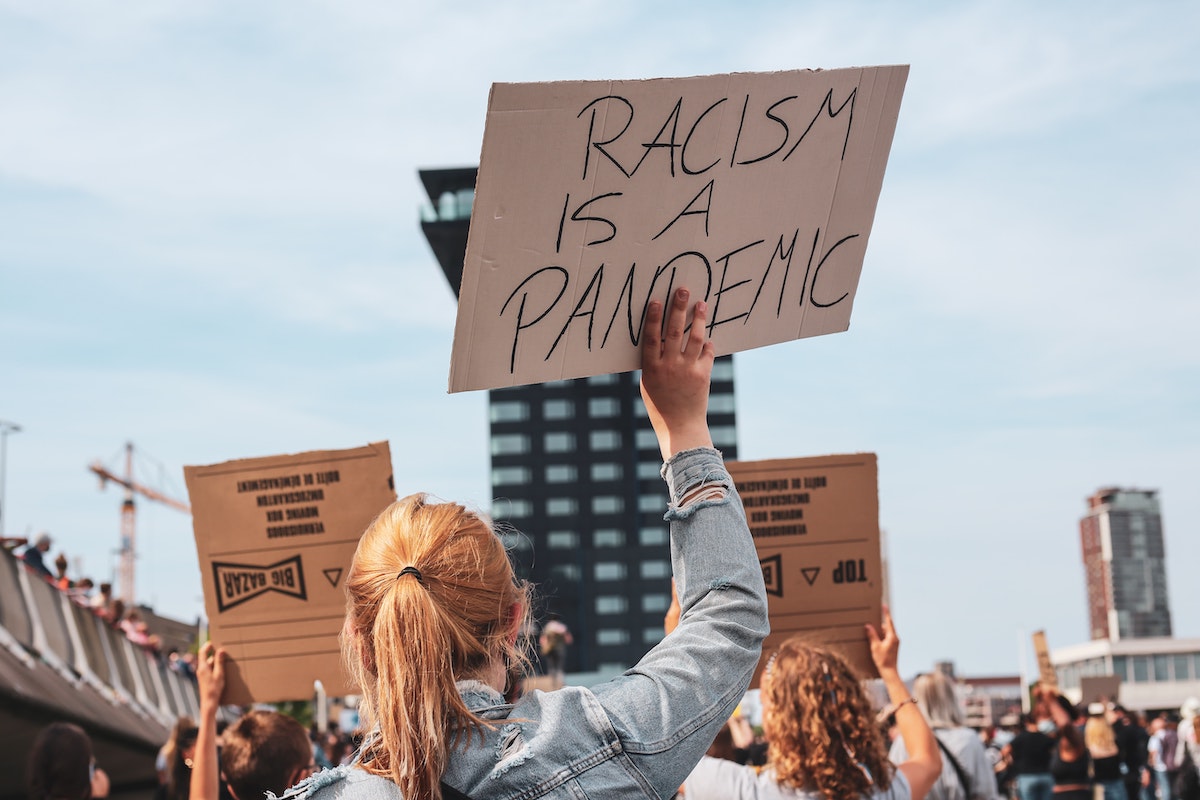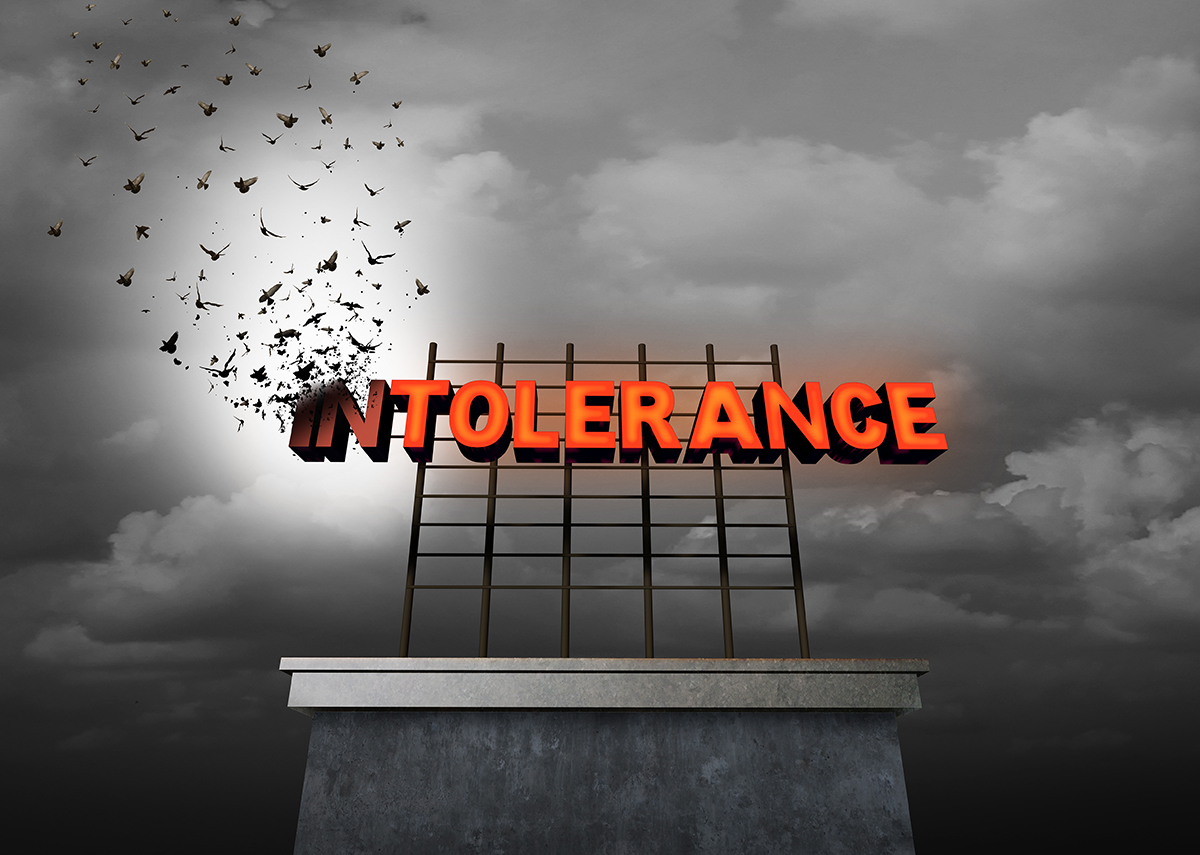Activism
The Purity Paradox: How Tolerance and Intolerance Increase at the Same Time
By relentlessly expanding the concept of intolerance, prevalence-induced concept change ensures none of us can ever be good enough—if we pass one test of tolerance, we are sure to fail the next.

How can intolerance be increasing when Western democracies are demonstrably more tolerant of historically marginalised identities than at any point in their history? It is, according to Douglas Murray, “a curiosity of the age” that as racial and sexual tolerance “at the very least appears to be better than it ever was, it is presented as though it has never been worse.” This paradox occurs because, as we address and overcome problems of intolerance and discrimination, we also expand the concept of intolerance to stigmatise new attitudes and behaviours. This makes it appear as if we are either making no progress at all or, worse, that we are becoming more intolerant. The upshot is that social problems appear increasingly irresolvable.
It is, of course, counter-intuitive to think of tolerance and intolerance increasing at the same time. Nevertheless, the idea is supported by a Harvard University study of human judgement, led by Professor Daniel Gilbert. In a series of experiments, Gilbert and his team of researchers showed that “people often respond to the decrease in the prevalence of a stimulus by increasing the concept of it.” He termed this phenomenon “prevalence-induced concept change.” In the first experiment, participants were shown 1,000 dots that varied on a continuum from very purple to very blue and then asked to identify the blue dots. After 200 trials, the number of blue dots was decreased for one group of participants but increased for another. In both cases, participants assessed the number of blue dots to be the same—the group with decreasing blue dots expanded their concept of blue to include dots they had previously excluded. This change was not altered by forewarning participants, by sudden decreases in prevalence, or by reversal in the direction of prevalence.
The same effect was noticed when participants were shown 800 human faces on a continuum of threatening to non-threatening—when the prevalence of threatening faces was reduced in one group, participants expanded their concept of threat to include faces which they had previously defined as non-threatening. In a third study, participants were shown 240 proposals for scientific research that were rated on a continuum from very ethical to very unethical. When the prevalence of proposals defined as unethical were decreased for one group, the group expanded their concept of unethical to include proposals they had previously defined as ethical.
The implications of this research should give us pause for thought across a wide range of social and cultural issues, especially when it comes to assessing the prevalence over time of bias against marginalised groups. There is no doubt that discrimination against people on the basis of race, gender, or sexuality continues, the view that it is increasing is likely to be an effect of prevalence-induced concept change. The concept of what constitutes discrimination has expanded, and as marginalised communities have splintered into mutually antagonistic groups, overall hostility and inter-community tension has been exacerbated.
Tests for the detection of “unconscious bias,” such as the Harvard Implicit Association Test (IAT), have played a significant role in the emergence of this paradox, and the IAT’s methods have been widely adopted. For example, the UK Government established a programme of diversity training to unearth unconscious biases in participants. So, even as people become more tolerant of racial and gender differences they find themselves condemned for intolerance so deeply buried they were not even aware of it themselves. The theory of intersectionality, meanwhile, now widely embraced in Western universities, has generated an ever-expanding “matrix of oppression.” In search of a solution to the resulting tsunami of newly discovered prejudice, the number of oppressors—from white cis-gendered men to “Trans-Exclusionary Radical Feminists”—proliferates, resulting in a feedback loop of exclusion, distrust, and resentment.
As concepts of discrimination and bias expand, the aggressive policing of behaviours increases in an attempt to rid society of all remaining prejudice. At the University of Sheffield in England, students were paid by the university to monitor the language of their fellow students for evidence of “microaggressions” that may unintentionally cause offence to a racial group. This inevitably leads to the needless demonisation of tolerant, liberal students as intolerant unconscious racists. And as the concept of intolerance increases in this way, tolerant behaviours and attitudes struggle to keep up. Like the Red Queen in Through the Looking Glass, we have to run faster just to stand still.

The outcome of all this is rampant no-platforming in universities and colleges, necessitated by the assumption that if people can’t be reformed then they must be silenced instead. The philosopher Alfred North Whitehead described the University of Chicago as “the one place I have been that is most like ancient Athens.” He would doubtless have been disappointed to learn that protests derailed plans to invite Trump’s former chief strategist, Steve Bannon, to participate in a debate on campus. Although the event did not take place, the professor who invited him remarked, “whether you like his views or not, he seems to have understood something about America that I’m curious to learn more about.”
Similar culture wars are escalating around gender. British author J.K. Rowling was showered with spiteful invective simply for being “deeply concerned about the consequences of the current trans activism.” The Indian feminist Vaishnavi Sundar had the screening of her film pulled because she objected to pre-op transwomen sharing shelters and bathrooms with female survivors of sexual violence. Her sins were compounded by her belief that biological sex is not a social construct. Compare this kind of behaviour to the philosophy of Ira Glasser, a liberal Jew and former executive director of the American Civil Liberties Union (ACLU). Glasser recently described the banning of speakers with racist views as “the most politically stupid thing I had ever heard.” As head of the ACLU, he had defended the right of neo-Nazis to march through a largely Jewish neighbourhood of Chicago on the grounds that “what happened in Germany didn’t happen because there was a good First Amendment there. It happened because there wasn’t.”
How can we encourage kind and decent people to become ever-more tolerant when they are vilified no matter what they say or do because the concept of intolerance keeps expanding to swallow their good intentions? Our desire for greater equality and inability to acknowledge progress are spinning us into a purity spiral—as new layers of intolerance are uncovered, coercive corrective measures increase in ferocity. Left unchallenged, this takes us to ever-more dangerous places. As Simon Schama explains in his magnificent study of the French Revolution, “the violence that made the Revolution possible in the first place created the brutal distinctions between Patriots and Enemies, Citizens and Aristocrats, within which there could be no human shades of grey.”
Allergy to ambiguity and nuance and to the complexity of human experience makes impossible demands of the individual. This in turn results in rising levels of frustration and recrimination because somebody has to pay the price for failure. “Il faut du sang pour cimenter la révolution” (“There must be blood to cement the revolution”) cried Mme Roland at the height of the French Revolution only to find herself arrested and guillotined a short time later. When justified campaigns for racial justice and gender rights adopt this same approach, they are fuelling the very forces they claim to oppose.
“My ultimate objection to political correctness,” English writer, actor, and comic Stephen Fry has observed, “is not that it combines so much of what I have spent a lifetime loathing and opposing: preachiness (with great respect), piety, self-righteousness, heresy-hunting, denunciation, shaming, assertion without evidence, accusation, inquisition, censoring… My real objection is that I don’t think political correctness works… (It) is always obsessed with how right it is, without thinking of how effective it might be.”
By relentlessly expanding the concept of intolerance, prevalence-induced concept change ensures none of us can ever be good enough—if we pass one test of tolerance, we are sure to fail the next. Meanwhile those who believe they do not have to change, wait—endlessly and in vain—for the world to change around them. The Jewish philosopher Walter Benjamin, understood clearly where this cycle takes us. Benjamin, who committed suicide as he fled Nazi persecution, wrote about the Angel of History whose “face is turned toward the past”:
Where we perceive a chain of events, [the angel] sees one single catastrophe which keeps piling wreckage upon wreckage and hurls it in front of his feet. The angel would like to stay, awaken the dead, and make whole what has been smashed. But a storm is blowing from Paradise; it has got caught in his wings with such violence that the angel can no longer close them. The storm irresistibly propels him into the future to which his back is turned, while the pile of debris before him grows skyward. This storm is what we call progress.
Benjamin’s logic is poetic and flawless in its illustration of a history of accumulated horror. As we disappear down the rabbit hole of identitarianism, hostile groups magnify existing divisions and manufacture new ones. But as we bask in the warm feeling of being good and right (and every identity group is always good and right), we should be wary of making ever-more exacting demands for tolerance which, by their very nature, can never be satisfied. The only way to “make whole what has been smashed” is to identify a common humanity that can obviate these divisions.
Prevalence-induced concept change seems to be a hardwired human trait, common to us all. Left unchecked, it will sow irresolvable division. If we are to attain a greater measure of social justice, we would do well to look at ourselves first and rescue our shared humanity from whatever sex, race, or culture we believe we belong to. Seeing the “Other” in myself, seeing in ourselves the things we dislike most in others, is a prerequisite to freeing the individual from the prison of the group. It means sacrificing moral purity in order to be effective in tackling intolerance.






